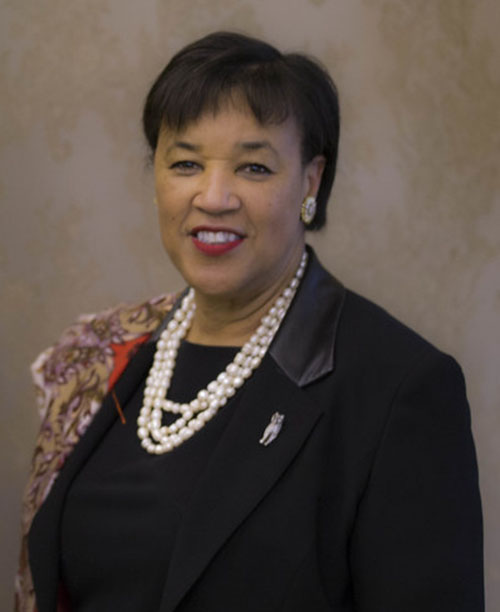(BBC) The British government has suspended its funding of the Common-wealth Secretariat, the body that runs the international organisation from London, the BBC has learned.
UK diplomats have told Lady Patricia Scotland, the secretary-general of the Commonwealth, that Britain’s annual £4.7m voluntary contribution will be withheld until her secretariat improves its financial procedures.
The Secretariat insisted it was implementing recommendations made by external auditors.
The UK decision came after Lady Scotland was criticised by auditors for “circumventing” usual competitive tendering rules when she awarded a lucrative consultancy contract to a company run by a friend.
The auditors also discovered that procurement rules had been waived by the secretariat on no fewer than 50 occasions over three years.
New Zealand and Australia have also suspended their discretionary funding to the Common-wealth Secretariat until its financial systems are tightened up and tested by external auditors.
The UK decision threatens to plunge the secretariat into a financial crisis and will raise fresh questions about Lady Scotland’s leadership.
Commonwealth heads of government have already rejected calls to give Lady Scotland an automatic second term of office when it comes up for renewal this year.
The funding crisis came to a head last week when Commonwealth high commissioners in London – who together form the organisation’s board of governors – met to discuss the results of the investigation by the external accountancy firm KPMG.
About two-thirds of the Commonwealth Secreta-riat’s funding – some £18.4m in 2018 – comes from automatic subscriptions from member states.
But there is also a second budget for the secretariat – the Commonwealth Fund for Technical Cooperation – which is discretionary and provides about a third of its funding, worth about £12m in the most recent audited accounts. The UK is the largest contributor to this fund.
A senior British diplomat wrote to Lady Scot-land on 3 February to say that continued UK funding would be suspended until the Commonwealth Secre-tariat complied with the recommendations of the KPMG report.
These conditions included a register of occasions when procurement rules were waived, a register of real and potential conflicts of interest, and an updating of the body’s whistleblower policy.
The official gave the secretariat a deadline of 21 February to implement all the reforms which would have to be signed off by the chairman of the Common-wealth’s independent audit committee.
A spokesperson for the Foreign Office said: “We are committed to an effective Commonwealth that delivers for its member states, so we have set a number of conditions on UK funding to the Commonwealth Fund for Technical Cooperation for this financial year.
“These include conditions relating to ensuring that the Secretariat’s procurement policy and its implementation are in line with international best practice.”
A Commonwealth spokesperson said: “The Commonwealth Secretariat does not comment on private exchanges with its member countries.
“The Secretariat complies fully with the audit process and implements recommendations accordingly.”
New Zealand has also put its £1.5m contribution on hold.
A spokesman for its Ministry of Foreign Affairs and Trade said: “An independent audit report by KPMG has identified significant weaknesses in the Commonwealth Secreta-riat’s approach to managing procurement. As a result, New Zealand has put on hold its voluntary financial contribution to the Secretariat until we receive independent confirmation the recommendations from the audit report have been addressed by the Secretariat.”
Australia has gone one step further and cut its funding to the Common-wealth Secretariat by £414,000 and has made its remaining contribution of £260,000 contingent on the reforms being implemented.
A spokesperson for Australia’s Department for Foreign Affairs and Trade said: “This new funding amount will be paid only after there is independent confirmation that the issues identified in the audit have been addressed by the Secretariat.”
Commonwealth high commissioners called in KPMG last September amid concerns about the secretariat’s financial procedures.
The resulting report by the Commonwealth’s audit committee accused Lady Scotland of “circumventing” the usual competitive tendering rules by awarding a £250,000 commission to KYA Global to carry out a review of the secretariat.
The consultancy firm was owned by Lord Patel of Bradford, a friend of Lady Scotland and a fellow Labour peer.
The audit committee report – dated last November – claimed Lord Patel’s firm was “apparently insolvent” at the time with debts worth more than £40,000. And it stated that the Commonwealth Secretariat was unable to provide the auditors with KYA Global’s final report setting out its recommendations.
The report also found that the Secretariat had no register either of tender waivers or conflicts of interest and was unable to explain why not. Under Commonwealth rules, competitive tendering procedures can be waived in certain circumstances, such as if a decision has to be taken urgently or if there are not enough suppliers.
The committee identified 50 occasions between July 2015 and June 2018 when the usual procurement tenders had been waived by the Commonwealth Secretariat. Some of these decisions predated Lady Scotland’s appointment in April 2016.
Lady Scotland’s lawyers have insisted the decision to award the contract to Lord Patel’s firm was fully justified and complied with procurement procedures at the time.
In a statement last month, Lady Scotland’s solicitors, Carter-Ruck, said KYA Global Ltd was awarded the two contracts “on the basis of its proven track record in change management consultancy” and its services were “dearly needed” at the beginning of Lady Scotland’s term of office.
It said: “This decision was wholly justifiable and SG Scotland was advised that this complied with the procurement procedures that were in force at the time.”
The statement continued: “The Secretariat has complied fully with the request of its auditors and has adopted and implemented, or is implementing, their recommendations.”









